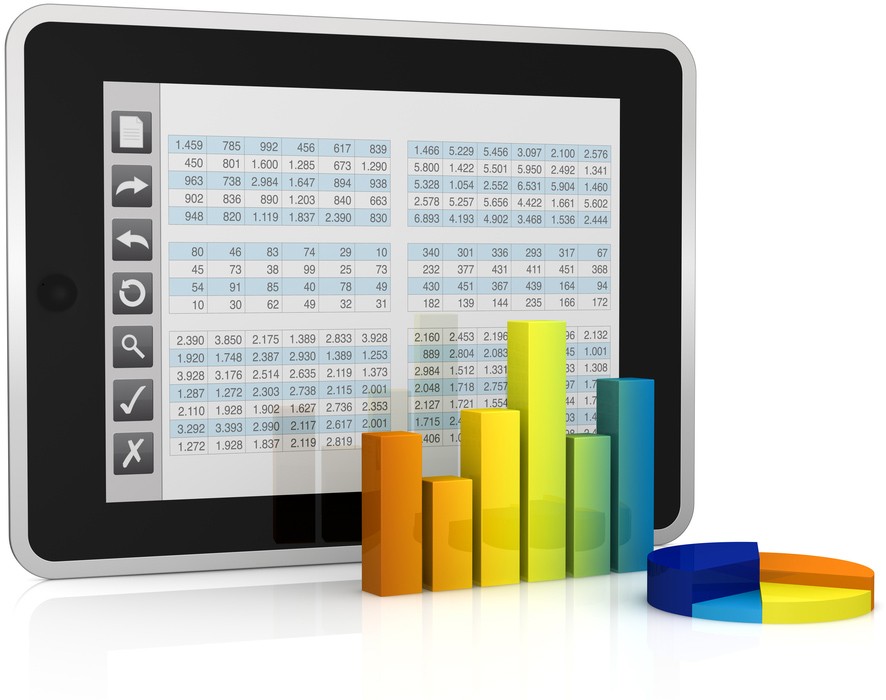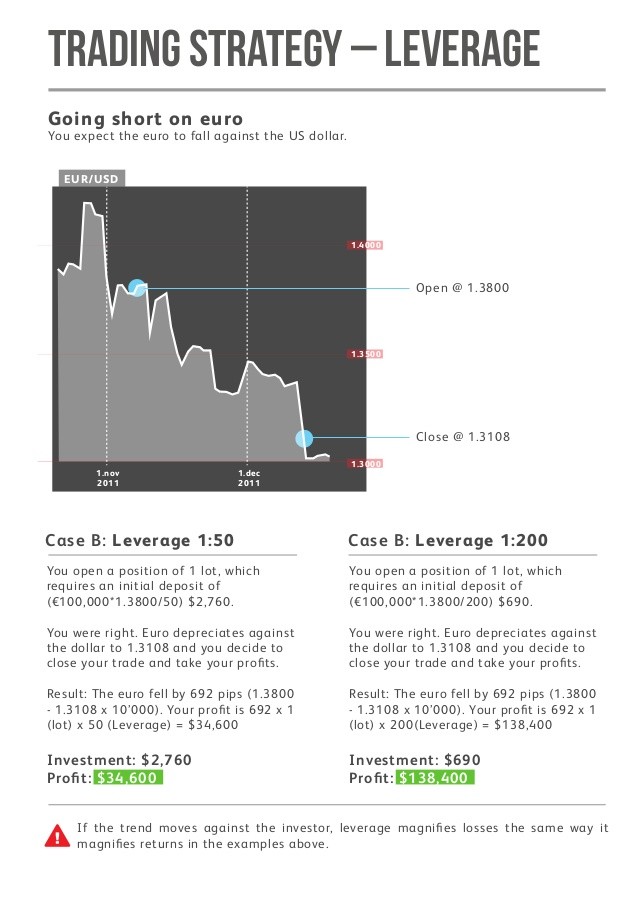The Euro What Every Forex Trader Needs To Know
Post on: 10 Июль, 2015 No Comment

Foreign exchange, or forex. trading is an increasingly popular market for investors and speculators. The markets are huge and liquid, trading occurs on a 24-hour basis and there is enormous leverage available to even a small individual trader. Moreover, is the forex market presents the opportunity to trade on the relative fortunes of countries and economies as opposed to the idiosyncrasies of companies. (For more, see Forex Leverage: A Double-Edged Sword. )
Despite many attractive characteristics, the foreign exchange market is vast, complicated and ruthlessly competitive. Major banks, trading houses, and funds dominate the market and quickly incorporate any new information into the prices. In fact, just 10 firms control about 75% of foreign exchange volume and it is all but impossible for a currency trader to know who they are trading with at any particular moment.
Foreign exchange is not a market for the unprepared or ignorant. To effectively trade foreign currencies on a fundamental basis, traders must be knowledgeable when it comes to the seven major currencies. This knowledge should include not only the current economic stats for a country, but also the underpinnings of the respective economies and the special factors that can influence the currencies. (For more, see The Fundamentals Of Forex Fundamentals. )
Introduction to the Euro
The euro is second only to the U.S. dollar in its significance in the international currency market. The euro is not only the second most actively traded currency, but it is also a primary or secondary reserve currency for many countries.
The euro is very nearly a unique currency in the world. Although other currency unions predate the euro (including the West African CFA franc), most monetary unions involve small countries with relatively little international importance. With the adoption of the euro in 1999, though, major global currencies like the German mark, French franc and Dutch guilder effectively disappeared from use.
The euro is the official currency of the eurozone and of 17 of the 27 member states of the European Union (EU), with countries like the United Kingdom, Sweden, and Denmark maintaining their own independent currencies — and Switzerland is not a part of the European Union. Members of the EU had to meet strict fiscal criteria to join (including limits on budget deficits and inflation) and the countries surrender their sovereignty over monetary policy to the European Central Bank.
As a bloc, the European Union has the largest GDP in the world and is the largest exporter in the world. (For more, see High GDP Means Economic Prosperity, Or Does It? )
The Economy Behind the Euro
Unlike the other major currencies of the world, there is no singular economy behind the euro. Speaking of the health of the eurozone, then, is really tantamount to speaking of the overall health of its 17 euro-using members. Even then, though, it is important to realize that it is not a uniform region with a single fiscal policy; Germany can be strong while France is weak and vice versa.
International trade is quite important to the economy of the eurozone and exports are a larger percentage of its GDP than for the United States or Japan. These are relatively industrialized countries, though, so manufacturing and services are a much more significant part of the economy. Few eurozone members are significant commodity producers (Norway is a notable exception) and the price of commodity imports can be a significant factor in the health of the region.
While it can be challenging enough to monitor the economic reports of a single country, the euro takes it a step further. In practice, though, it is not necessary to monitor the data coming out of every member country – France, Germany and Italy account for almost two-thirds of the GDP of the eurozone. It is certainly important, though, to monitor the data from Eurostat (the statistical directorate of the European Union) – particularly trade balances, GDP, inflation and eurozone sentiment indicators. Beyond that, it is often fruitful to monitor those specific reports from Germany and France as well. (For related reading, see 5 Economic Reports That Affect The Euro. )
Drivers of the Euro
Economic models designed to calculate the right foreign currency exchange rates are notoriously inaccurate when compared to real market rates, due in part to the fact that economic models are typically based on a very small number of economic variables (sometimes just a single variable like interest rates). Traders, however, incorporate a much larger range of economic data into their trading decisions and their speculative outlooks can themselves move rates just as investor optimism or pessimism can move a stock above or below the value its fundamentals suggest.
Key economic drivers for the euro include the GDP, trade balance, current accounts, inflation, industrial production and consumer/business confidence of the eurozone. As mentioned above, though, it is also important to follow the economic fortunes of large member countries like Germany and France. Moreover, traders need to remember that the largest trading partners of most eurozone countries are other European countries, some of which do not belong to the monetary union. In other words, the economic and political conditions in countries like United Kingdom, Switzerland, and Russia also have a significant impact on the value of the euro. (For more, see The Currency Market Information Edge. )
Although the European Central Bank (the ECB) imposes a central monetary policy on its member states, there is considerably less oversight on fiscal policy. The outcome of this discrepancy can be seen in the European sovereign debt crisis – countries like Greece, Portugal, and Spain were able to borrow at what were essentially subsidized rates (that is, rates lower than they would have enjoyed on their own merits) and indulge in extensive debt-financed government spending. Consequently, the economic conditions within one member state can be dramatically different than another.
While the value of the euro is certainly tied to the economic health of the eurozone, traders should also remember that it derives some of its value and popularity as an alternative to the U.S. dollar. Prior to the European sovereign debt crisis, the euro had been gaining momentum as an alternative to the dollar and tended to gain strength as the dollar weakened. That said, when there is uncertainty in the world traders still tend to crowd into the U.S. dollar as a safe haven, as the sovereign independence of the euro’s member states does tend to complicate their response to crises. (For related reading, see How Countries Deal With Debt. )
Unique Factors for the Euro

The ECB is the central bank that stands behind the euro and manages the monetary policy for the eurozone member states. The ECB is unique in that it has to formulate a central policy that applies to all members, despite the varying economic conditions that can occur across the region.
Not only are there practical issues that complicate this process, there are psychological factors as well. The Germans, for instance, have historically been far more sensitive to inflation than the Italians and there is a constant push-pull between countries that want a conservative inflation-minimizing policy and those that would prefer a more growth-oriented approach. (In this article, we look at the structure and primary focus of each of the major central banks. For more, see Get To Know The Major Central Banks. )
Expansions and Subtractions
Although the treaties that created the eurozone did not give much specificity about the mechanism for a country leaving the euro, the sovereign debt crisis has raised this possibility. A country like Greece may opt to leave the union so as to have its own currency that could then be allowed to depreciate and relieve some of the country’s economic and debt burdens. Alternatively, a strong country like Germany may tire of effectively subsidizing weaker partners and conclude that the costs outweigh the benefits and look to remove itself. (For related reading, see What Causes A Currency Crisis? )
Rumors of such moves have rattled the euro several times; the prospect of weaker countries leaving (or being kicked out) tends to be slightly positive (though occasionally negative for the chaos and uncertainty it represents), while rumors of Germany’s disenchantment often lead to sharp drops. To a lesser extent, rumors of further expansion can move the currency as well, though it is generally seen as a low-impact event given the size of remaining potential members and the modest impact they would have.
An Alternative at Last?
It is clear from the propaganda that surrounded the formation of the euro that some hoped the euro would supplant the U.S. dollar as the leading world currency. Though that is still perhaps possible, the eurozone is a huge economic force in the world after all, the setbacks and uncertainties of the sovereign debt crisis highlighted some of the weaknesses of the currency. (For related reading, see How U.S. Firms Benefit When The Dollar Falls. )
The Bottom Line
Although the euro had been gaining strength prior to the worldwide credit crisis at the end of the first decade of the 21st century, the sovereign debt crisis in Europe has created real questions about the survivability of the currency and its members. It is clear now that some countries hid their problems to get into the currency union and could not responsibly handle the benefits produced by the union. Paying for bailouts can stress the economies of other members and cracks in the union have begun to appear.
Though it seems unlikely that the euro will collapse, traders should expect more turbulence and the possibility of some countries leaving the union. If the eurozone can clean house and shore up its weaknesses, it is likely to grow in significance and become a stronger alternative to the dollar as a reserve currency. (For related reading, see Global Trade And The Currency Market. )














